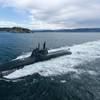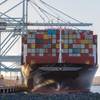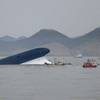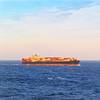How the Marshall Islands became a top U.S. Crude Destination
Best known for diving, lagoons and the island that gave the world the name for the bikini swimsuit, the Marshall Islands is now gaining attention as a top-five destination for U.S. crude exports despite the lack of a refinery to process the oil.
The shipments to the Marshall Islands, a tiny atoll nation in the middle of the Pacific Ocean, are a quirk of U.S. regulations, providing a vivid example of how traders carry out arbitrage opportunities and how fuel is supplied to some of the world's most remote regions.
Since the removal of restrictions on exporting U.S. crude in December 2015, the oil has gone to a rising number of countries, with an average monthly volume of over 500,000 barrels per day (bpd), according to figures from the U.S. Energy Information Administration (EIA) published this week.
Among the top takers of U.S. crude are the Netherlands, Japan and Italy. But, ahead of France, at number five comes the Marshall Islands.
"The Marshall Islands... is the fifth-largest non-Canadian destination for U.S. crude oil exports in 2016, averaging 14,000 barrels per day," the EIA said.
They are an unlikely destination for crude exports, with a population of 50,000, located in the middle of the Pacific to the west of Hawaii and to the east of the Federated States of Micronesia.
The Marshalls are best known for being a major shipping registry, a diving paradise, and for the Bikini Atoll where dozens of U.S. nuclear bombs were tested in the 1940s and the 1950s. French designer Louis Reard used the island's name for his two-piece swimsuit that he released in 1946 to capitalize on the explosive connection.
The EIA says that the U.S. oil is unlikely to remain in the Marshall Islands.
"With no refineries, the Marshall Islands are unlikely the final destination, but rather may be the location of ship-to-ship transfers for delivery to destinations in Asia, or a point at which a cargo of crude oil would await a buyer in Asia," the agency said.
Traders said that the U.S. fuel mostly came from Hawaii and spread across the many tiny inhabited islands of the Pacific. Other suppliers of fuel to the vast but sparsely populated region are Japan and South Korea.
Shipping data in Thomson Reuters Eikon showed that around a dozen small oil tankers ship fuel between Pacific Islands like the Marshall Islands, neighbouring Micronesia, Kiribati, and also Papua New Guinea.
Traders said that the Marshall Islands were also being used to comply with U.S. regulations requiring exporters to specify a destination for their goods, even if in some cases the final destination changes en route due to arbitrage opportunities.
The top destination of U.S. crude exports is another, small little-known country: Curacao, a Caribbean island state of 150,000 people.
To oil traders, however, Curacao is well known, as it has been home to a large refinery for almost 100 years.
By Henning Gloystein











